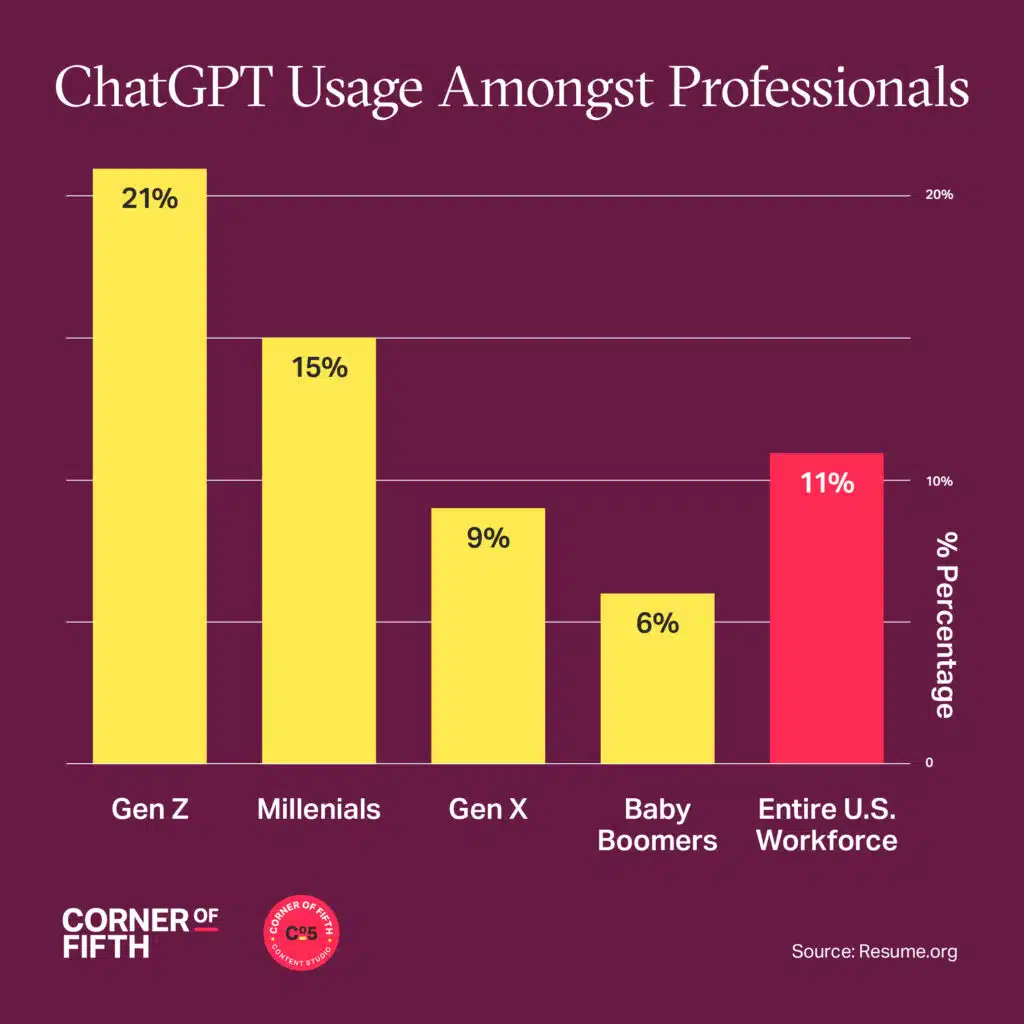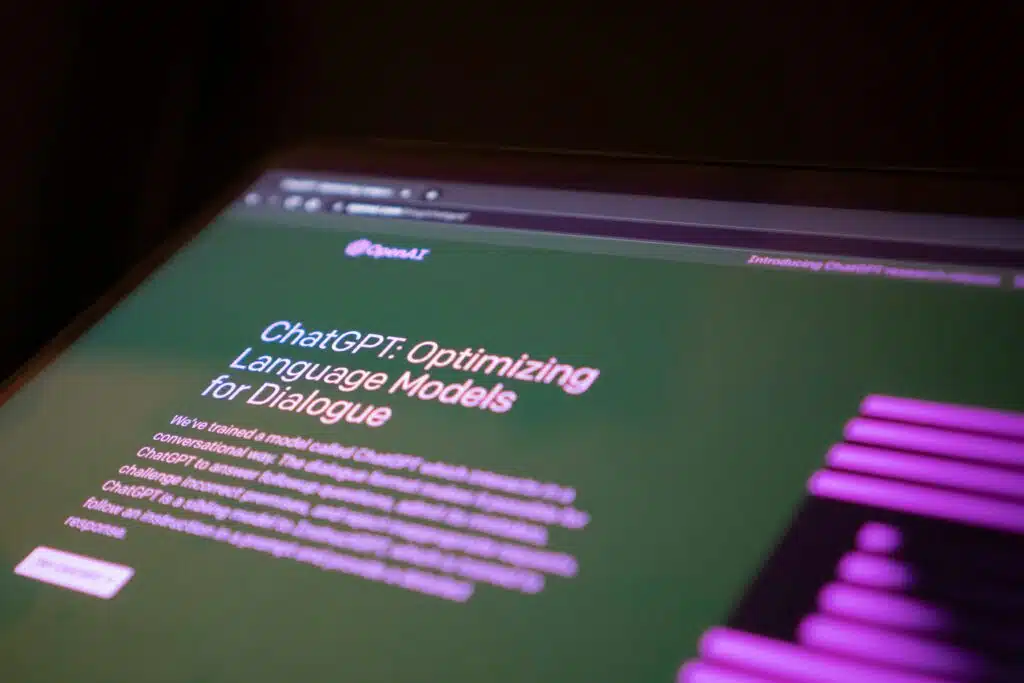
Gen Z workers use ChatGPT as an office tool while also integrating it into their personal lives.
Artificial intelligence and generative AI is transforming work environments with Gen Z employees leading the way to further implement this technological change, according to a Resume.org survey of 8,647 full-time U.S. workers.
Researcher found that younger employees show significantly higher adoption of ChatGPT than their senior colleagues.
The AI chatbot serves Gen Z employees as a productive tool and creative force and many consider it their personal assistant and some view it as their friend. The study reveals how ChatGPT alters workplace culture through Gen Z employees who lead the adoption of the tool between their professional and personal activities.
The survey indicates that 20% of Gen Z professionals use ChatGPT in their daily work
The AI tool ChatGPT shows regular use among 21% of Gen Z employees but this number drops to 11% when including the entire U.S. workforce. Research data indicates that Millennial users utilize the platform at a rate of 15% while Generation Z users demonstrate double the usage rate at 21% for weekly usage. Usage statistics show that older workers demonstrate lower adoption rates than younger employees because 9% of Gen X and 6% of Baby Boomers use the platform in this manner. Irina Pichura, career coach from Resume.org, said the observed difference between generations stems from exposure level and timing factors.

The AI tool ChatGPT shows regular use among 21% of Gen Z employees but this number drops to 11% when including the entire U.S. workforce.
According to Pichura, the workforce entry of Gen Z members coincided with the growing popularity of AI tools including ChatGPT. People in Gen Z view AI tools as productivity boosters that deliver immediate assistance during their entire working hours.
The platform initially attracted attention through its efficiency-enhancing features that included content generation and meeting summarization and code development capabilities. Gen Z workers have expanded the capabilities of AI tools which now influence how these tools function within their daily routines. The survey demonstrates that users utilize ChatGPT for 82% of their professional needs including idea generation and process optimization.
The platform has seen a rise in casual usage patterns while also getting more personal.
ChatGPT users now use the tool for personal dialogues (37%) while also playing games (24%) and pretending to work when their tasks are slow (14%). Gen Z users lead the way in combining ChatGPT usage for their professional work and personal activities. The survey reveals that 20% of Gen Z users dedicate more than one hour to conversing or playing games with the tool when they are at work.
Seeking Advice and Emotional Support
The digital assistant ChatGPT has evolved into a resource that people use to seek guidance on important choices and solve their personal problems. Personal conversations with the AI tool reveal that users choose to seek advice about challenging decisions (38%) as their primary reason. The survey results also show that 32% of users discuss their hobbies and personal interests with ChatGPT while 29% seek career guidance and 27% require personal finance assistance and 26% request entertainment recommendations.

Research reveals that users frequently depend on ChatGPT for emotional help as well as assistance with interpersonal matters. Workers spend nearly one-fifth of their time discussing their coworker-related problems or work-related issues with the AI tool. ChatGPT users access support for managing their mental health at 20% and relationship counseling at 15% levels.
Pichura notes in the report that ChatGPT functions as more than a productivity tool for numerous users who treat it as an assistant and even as a friend. According to Pichura the workplace gap in emotional support and interpersonal relationships is filled by ChatGPT which users find elsewhere.
The study reveals a fundamental discovery through which Gen Z users see ChatGPT as something more than its functional capabilities. The survey data shows that 51% of Gen Z users treat ChatGPT either as a co-worker or an assistant while 86% understand its function to enhance productivity.
More than any other age group Gen Z tends to personify ChatGPT because they view it as a companion (32%), a source of entertainment (36%) or even a therapist (21%). These tendencies align with millennials but at slightly lower rates. Although younger than Gen X and Boomers, millennials are more likely to use ChatGPT for emotional and personal support, they do not anthropomorphize it as much as their younger counterparts do.
Read the full report here.

